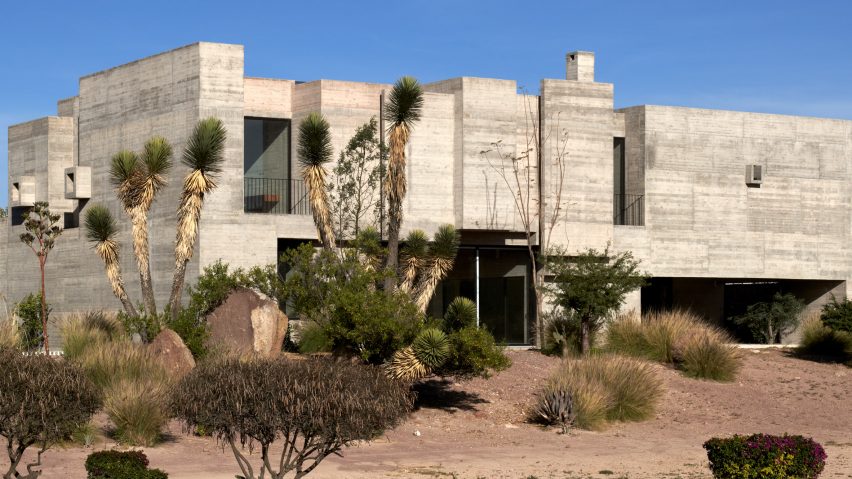
Lucio Muniain designs Mexican concrete house as "habitable sculpture"
Mexican architecture studio Lucio Muniain has created Casa HMZ, a brutalist house with raw board-formed concrete walls in San Luis Potosí, Mexico.
Completed in January 2023, the 8,600-square foot (800-square metre) house – known as Casa HMZ – was designed as a sculpture that you can live in, and follows Mexican architect Luis Barragán's approach of creating moments of mystery and discovery in addition to the traditional living spaces.
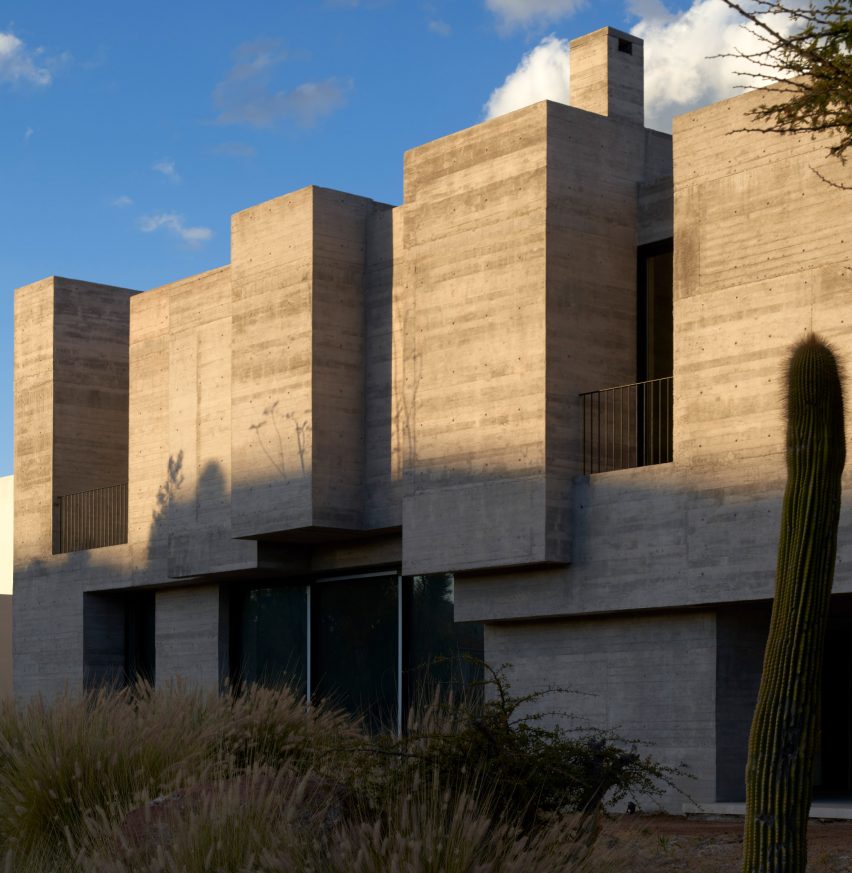
"The house is based on that unique theme: creating spaces that dramatize the path in-between typical domestic spaces," architect Lucio Muniain told Dezeen.
"Mass, volume, textures and light are key elements that define it."
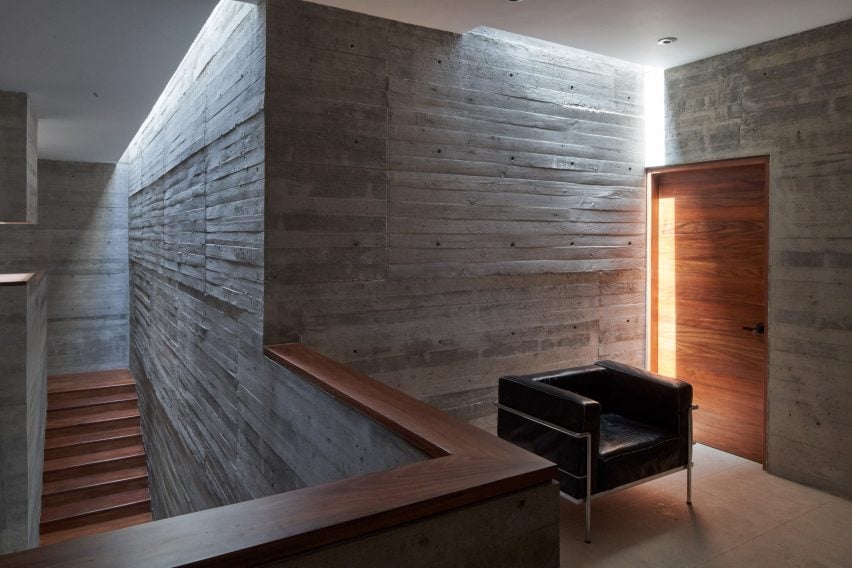
The heavy rectangular house sits on a golf course, where its solid appearance contrasts with its surroundings.
However, its recessed windows – tucked into niches of varying depth – offer the interior spaces wide views of the surrounding landscape.
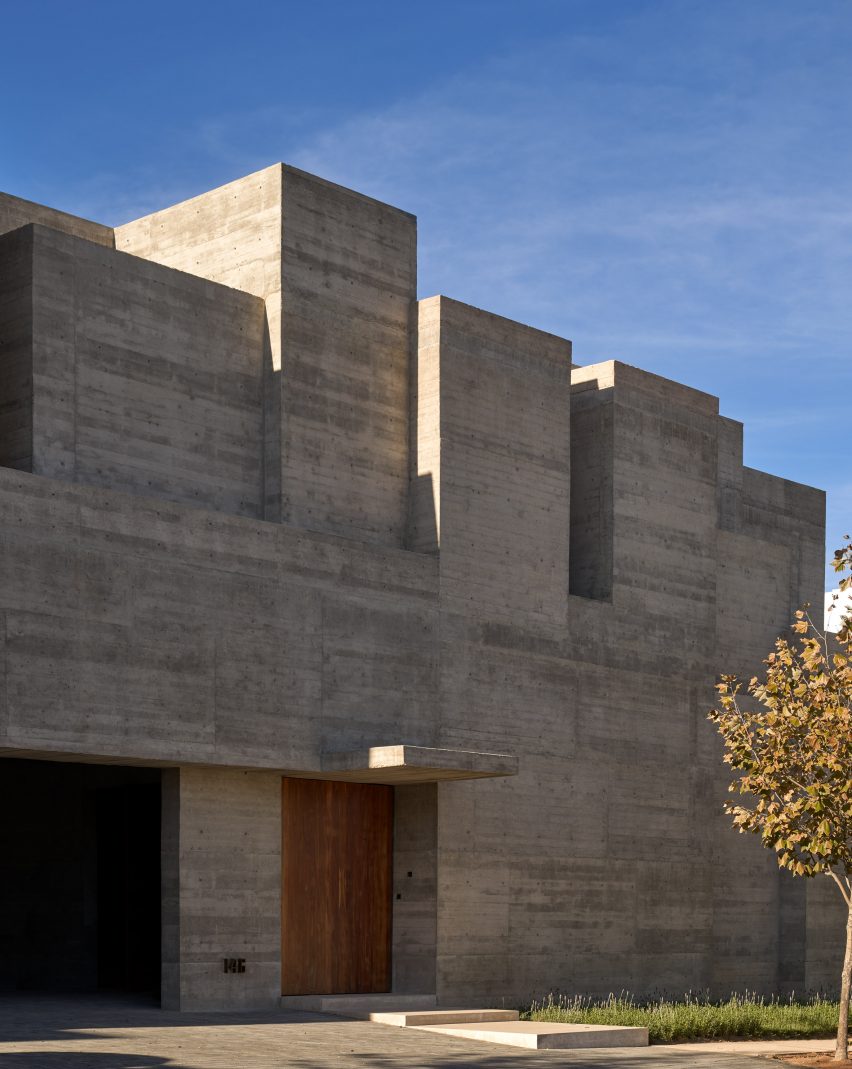
Entirely constructed in raw gray concrete poured into handmade wooden formwork, both the interior and exterior rely on light, shadow, height and compression.
On the interior, the floors are covered in tropical Tzalam hardwood and travertine stone.
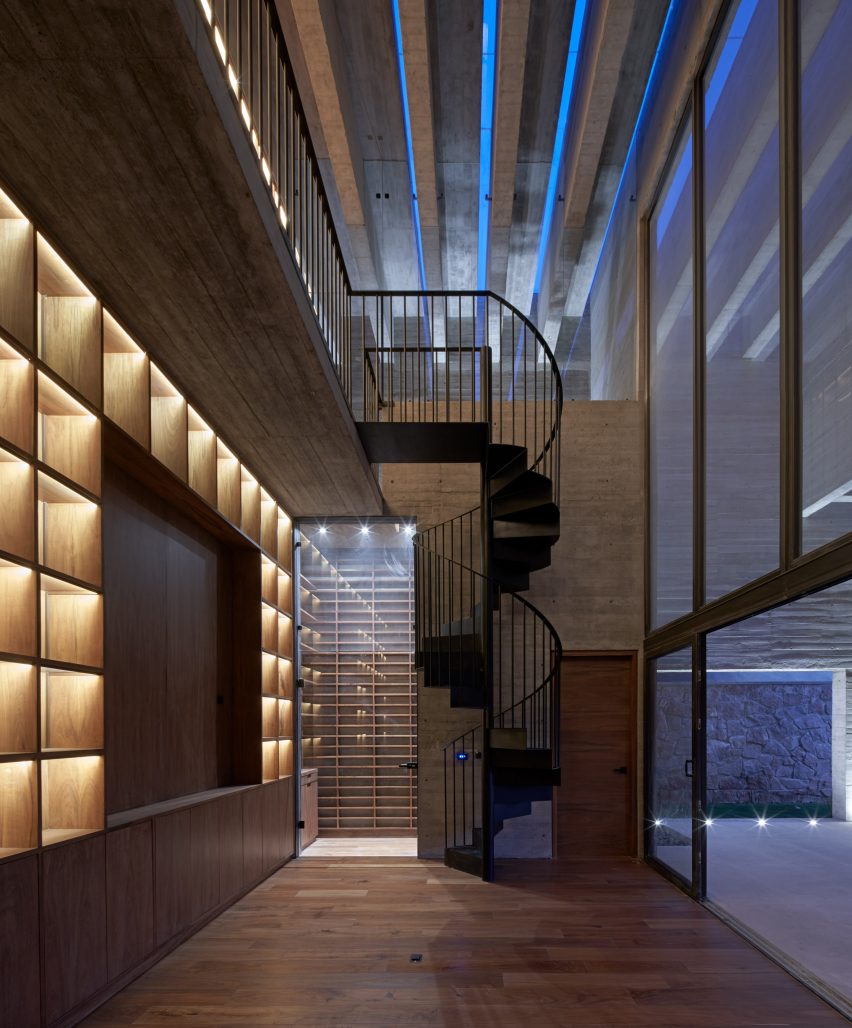
White plaster ceilings lighten the spaces, while steel and glass serve as accents to the heavy concrete.
The ground floor contains the public spaces: a living and dining room, a kitchen and a library that open up like terraces and allow wind to blow through the interior spaces.
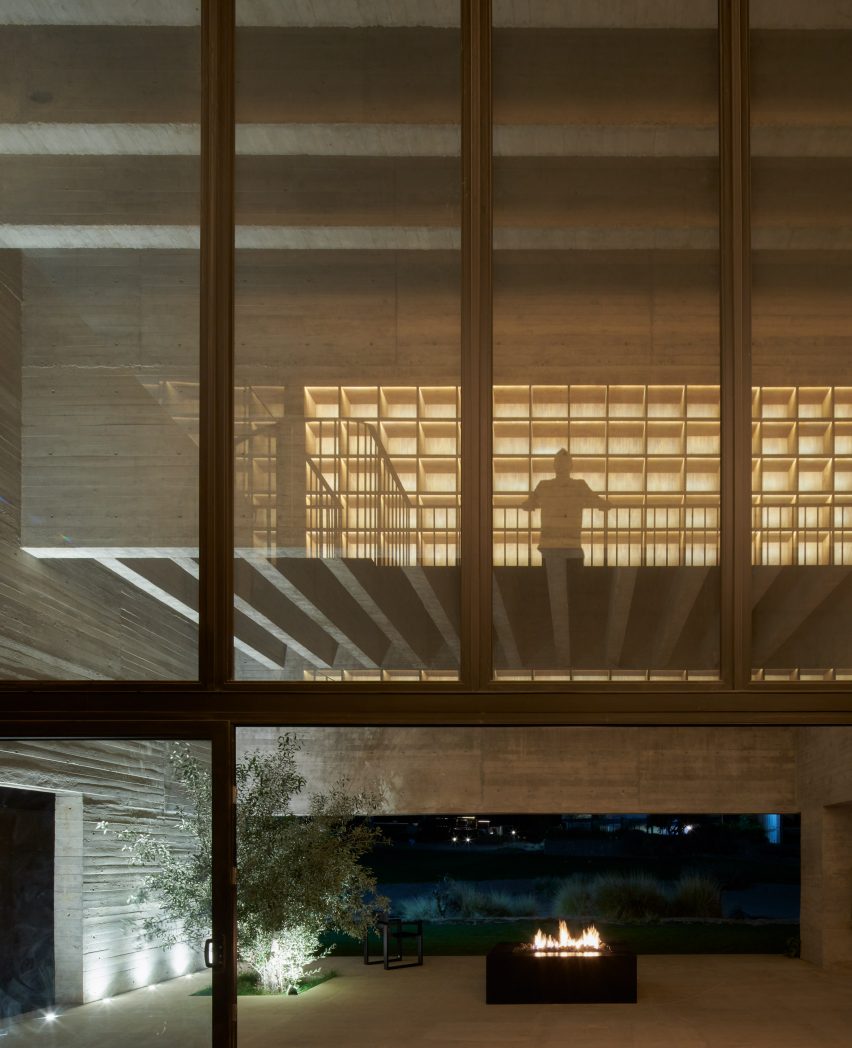
The northwestern edge of Casa HMZ holds the primary suite. A three-car garage is located on the eastern corner of the house, while a double-height exterior patio space sits in the southern corner, where it is shaded by deep concrete beams.
"The use of the house maintains an informal and comfortable concept that brings an aspect of comfortable dwelling being a dramatic sculpturesque architectural piece," the studio said.
Two spiral staircases rise up to the second storey, which contains three large suites, two small suites, a central lounge and a walkway that overlooks the patio through a glass wall.
In the future, the two upstairs bedrooms, which are currently used as children's bedrooms, could be used as guest rooms or studios.
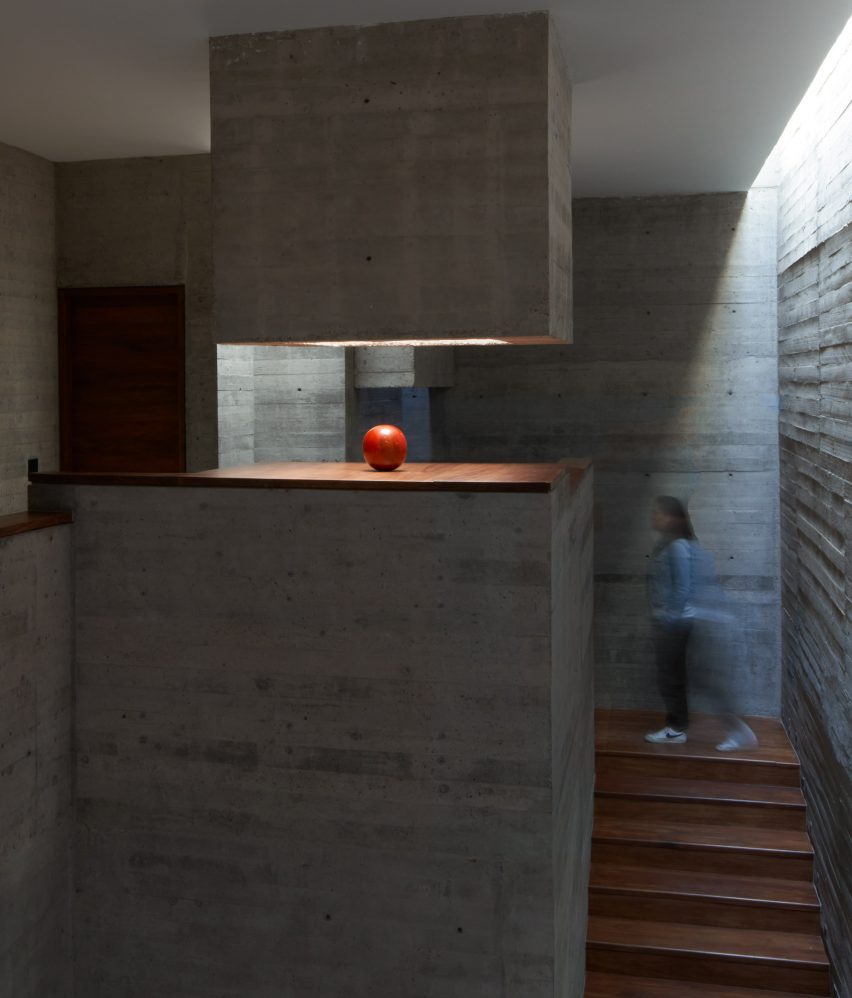
"Corridors, patios, double heights, paths, dramatic changes of scale, and other rhythms define this habitable sculpture," Muniain said. "These 'new' proposed spaces are the ones that create the magic of routes and paths towards basic needs."
Muniain noted that the biggest challenge of the project was constructing an all-concrete form — but believes that the material's imperfection adds to the design's beauty.

Other recent brutalist projects constructed in Mexico include a breezy hotel designed by Seattle-based Hybrid and Mexico City-based Palma and a cube-shaped vacation home designed by Mexico City-based Ludwig Godefroy.
The photography is by Edmund Sumner.
Project credits:
Architect: Lucio Muniain
Project development: Juan Carlos García, Michel Hernández, Gustavo Morales, Jose Luis Arroyo